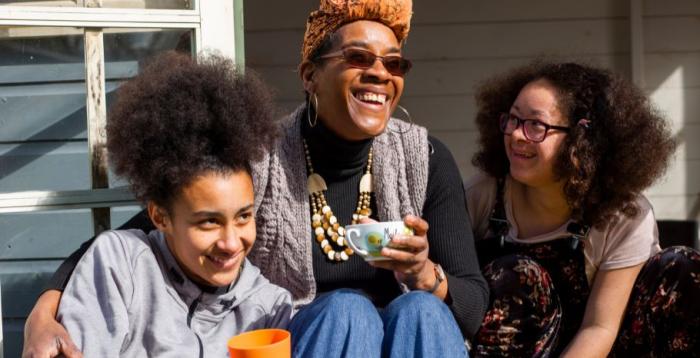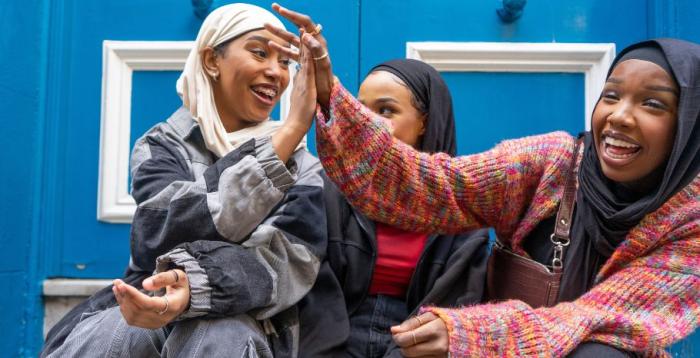The first NIHR ARCs national webinar series on mental health research concluded on 12 July with an event focusing on young people’s mental health. Around 300 people joined this event live, including researchers, health and social care professionals, voluntary sector organisations and members of the public.
This summer, NIHR ARCs launched a series of webinars exploring topical areas in mental health, including the correlation between mental health and world crises, the importance of social inclusion for mental health, and the last webinar, which tackled young people’s mental health.
In the final event of the series chaired by ARC East of England’s Professor Tamsin Ford CBE, there were three talks that focused on examining the relationship between social media use and the mental health of young people, encouraging schools and families to embrace evidence-based psychological interventions to reduce inequalities in outcomes for the mental health of children, and finally, how to actively involve young people in research design. Each talk was then followed by a Q&A.
The event chair, Professor Tamsin Ford CBE, reflected on this well-attended event:
"It was great to see so much interest in children and young people’s mental health, but no surprise given the quality and importance of the presentations."
Professor Tamsin Ford CBE, NIHR ARC East of England

The impact of social media use on young people's mental health
In the first talk, ARC North Thames Dr Ruth Plackett discussed the longitudinal relationship between social media use and the mental health of young people aged between 10 years old and 15 years old. For this research, Dr Ruth Plackett analysed findings from the UK Household Longitudinal Study, which is also known as Understanding Society.
Dr Plackett highlighted that the importance of the research lies in the progressive increase in young people experiencing probable mental health disorders and the greater impact of this on healthcare services. Parents, clinicians, and the national media raised the question of whether the increase in young people’s mental health difficulties is related to high social media usage. This project set out to explore and understand this relationship to inform public health interventions, policies, and regulations.
Dr Plackett looked at the mediating roles of two important factors: self-esteem and social connectedness. Dr Plackett explained that after analysing the data, there was not a significant link between poorer mental health and high levels of time spent on social media. However, there was some indication that there was a correlation between social media use and self-esteem. Dr Plackett reflected on the limitations of this study and similar research, as the measurements are based on individuals self-reporting the time they spent on these platforms, which may not be accurate. Also, what people identify as social media platforms may differ as well. Dr Plackett emphasised that not all social media interactions have had a negative effect, as for some people, it has reduced loneliness and created better connections.
"In terms of policy and practice, it seems that just focusing on advice like reducing time on social media itself might not be the best kind of advice. We should think about the role of things like self-esteem and how young people are using social media, either actively or passively, when we are thinking about developing public health interventions and guidance around this."
Dr Ruth Plackett, NIHR ARC North Thames

Working in partnership to help children with anxiety
ARC East of England’s Dr Brioney Gee led the second presentation, which introduced the on-going implementation of the Working on Worries project. This study aims to enhance the collaboration between the local mental health systems and primary schools in Norfolk and Waveney to improve access to parent-led cognitive behavioural therapy (CBT) for childhood anxiety.
Dr Gee explained that since the COVID-19 pandemic, there has been an increase in demand for support from Child and Adolescent Mental Health Services (CAMHS). In response to the need for increased access to timely and effective treatment, this project aims to equip local mental health practitioners to provide training and support to school pastoral staff to enable them to deliver parent-led CBT within their schools. Once trained, school pastoral workers then work with parents and carers within their school community to enable them to use CBT strategies in their child’s day-to-day life. This project is using implementation science methodology and evaluation to optimise the delivery and inform future implementation.
Dr Gee shared that this project has already trained nearly 100 primary school staff in the parent-led CBT approach. These individuals have begun or will soon be commencing the implementation of this method in their school setting. Dr Gee highlighted that there is an appetite for this approach, even in schools with an established Mental Health Support Team.
“Anxiety disorders in childhood are common and have a significant impact on the quality of life of young people and their families. We know that they’re associated with increased risks of negative outcomes in education, social, and health domains....we’re hoping that the learning from this can first and foremost help us to optimise the [implementation] approach and ensure it's sustained."
Dr Brioney Gee, NIHR ARC East of England

Young people shaping research
The final presentation was from NIHR ARC Southwest Peninsula’s (PenARC) Dr Gretchen Bjornstad on her work on the ‘Child and Adolescent Mental Health Services Research Inspired by Service Experts (CAMHS RISE)’ project. CAMHS RISE aimed to gather and collect ideas for new research questions and service evaluation from young people with experience of CAMHS, their parents, and clinicians.
Dr Bjornstad explained that this project is in response to the need for a system to enable children and young people to share questions that could lead to research or service evaluation. There were a series of workshops, which were flexible and aimed to listen and understand young people’s thoughts and questions about mental health and CAMHS.
Dr Bjornstad called for the need to include young people, parents, and carers when developing research that addresses community needs. This was evident as there were a total of 106 research questions that were formed from this project. Some included whether the waiting times for CAMHS had worsened mental health in young people and if ethnically diverse children and young people had a different service or treatment experience. The project explored the identified and prioritised key questions and provided evidence summaries using research that responds to their queries.
“One of the ideas behind this project is that rather than coming up with a research question…we actually wanted to ask [young people] from the beginning where we should start, and we didn’t lead that in anyway. It was really just trying to listen, reflect, and ensure we understood what they were saying....through feedback to the young people who are taking part and being involved in research.”
Dr Gretchen Bjornstad, NIHR ARC Southwest Peninsula’s (PenARC)
Keep up-to-date with the latest research, events and opportunities from all 15 ARCs across the country: follow @NIHRARCs on Twitter and subscribe to the NIHR ARCs newsletter and learn more and find your local ARC on the NIHR ARCs national webpage.
Find out more
- Watch the video recording of the webinar
- Slides: Exploring the longitudinal impact of social media use on adolescent mental health: findings from the UK Longitudinal Household Study, Dr Ruth Plackett
- Slides: Enhancing collaboration between the health and education systems to increase access to parent-led CBT for child anxiety: the 'Working on Worries implementation project, Dr Brioney Gee
- Slides: Gathering ideas for new research questions from young people with experience of Child and Adolescent Mental Health Services (CAMHS), their parents and clinicians, Dr Gretchen Bjornstad